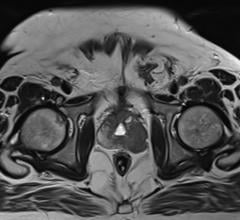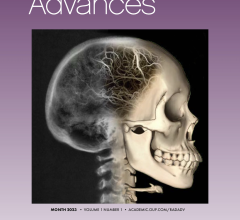June 6, 2016 — Lung cancer patients with oliogometastases may benefit from aggressive local therapy, surgery or radiation, after standard chemotherapy, according to research led by The University of Texas MD Anderson Cancer Center. If validated in larger studies, the findings could represent a dramatic shift in clinical care for thousands of lung cancer patients.
Daniel Gomez, M.D., associate professor, radiation oncology, presented the results in an oral presentation at the 2016 American Society of Clinical Oncology (ASCO) annual meeting. He and his colleagues found an eight-month progression-free survival benefit (PFS) in patients treated with local consolidative therapy (LCT).
According to the American Cancer Society, 224,390 people will be diagnosed with lung cancer and 158,080 will die from the disease in the United States this year. Of those diagnosed, said Gomez, approximately 50 percent have metastatic disease, and it has estimated that about 20-50 percent present with three or fewer metastases.
Historically, explained Gomez, all metastatic lung cancer patients have been treated with chemotherapy and thought to have incurable disease. With treatment advances over the past decade, however, a number of retrospective studies have suggested that in those lung cancer patients with minimal metastases, theoretically, the disease could be better controlled long-term by LCT.
“With recent advances in radiation delivery, targeted agents and systemic and maintenance therapy, some research has suggested it’s possible to control the disease. Yet those studies have inherent bias because patients treated with local consolidative therapy were selected due to favorable risk factors,” explained Gomez, the study’s corresponding author.
“Our research is the first randomized prospective study of oligometastases in lung cancer to look at treating patients aggressively and comparing results to standard therapy, which typically is maintenance therapy or observation.”
The prospective Phase II study was planned for 94 patients; however, because of the benefit seen in the study arm, the trial was stopped early. In total, the study enrolled and evaluated 49 non-small cell lung cancer patients from three participating centers, with MD Anderson serving as the lead site. All patients had: Stage IV disease; three or fewer metastases; and no progression after initial treatment with chemotherapy. The study’s primary endpoint was PFS.
Half of the patients were randomized to the experimental arm of LCT — radiation or surgical resection of all metastases, with or without chemotherapy; the other half received standard-of-care chemotherapy (no LCT). Radiation or surgery was determined by a multidisciplinary team based on metastasis presentation, and all variations of both modalities were permissible.
“With this study, we wanted to be pragmatic and allow the breadth of treatments that are now available to patients in general practice,” said Gomez.
The study was powered for a three-month PFS benefit. The median PFS time was 11.9 months in the LCT arm, compared to 3.9 months in the no-LCT arm.
Seventeen patients in the no-LCT group crossed over to the LCT arm, 14 due to progression.
Overall, of the 28 patients that progressed (12 in the LCT and 16 in the no-LCT), seven had progression in the primary site; three in a known site of metastasis; seven in a different metastasis and 11 in a combination of sites. Because the study was stopped early, overall survival is not yet mature.
The significance of the PFS findings surprised the researchers, said Gomez.
“For some time, there’s been a push from this patient population as well as a provider trend to treat with additional therapy,” said Gomez. “These findings provide evidence and enthusiasm to offer aggressive local treatment and, with validation, could pave the way to treat tens of thousands of lung cancer patients with curative intent.”
Further research will report on both overall survival and quality of life, and follow-up studies are being designed to include immunotherapy, making future findings more applicable to the current treatment options available to patients.
Limitations of the research include the heterogeneity of the patient population and the overall small size of the study. The study also was not powered to detect an overall survival benefit, and crossover between arms may dilute this effect.
The trial was funded, in part, by MD Anderson’s Lung Cancer Moon Shots Program and its philanthropic Lung Cancer Priority Fund.
In addition to Gomez, MD Anderson’s Stephen Swisher, M.D., professor and head of the Division of Surgery, and John Heymach, M.D., Ph.D., professor and chair of Thoracic/Head and Neck Medical Oncology, are both co-senior authors. Other MD Anderson study authors include: George R. Blumenschein, M.D., Don L. Gibbons, M.D., Ph.D., Anne S. Tsao, M.D., Jianjun Zhang, M.D., Ph.D., William N. William, M.D., all with Thoracic/Head and Neck Medical Oncology; Jack J. Lee, Ph.D., executive vice provost and Mike Hernandez, Biostatistics; Ritsuko Komaki, M.D., Radiation Oncology; and Jose A. Karam, M.D., Urology. Additional authors are: Ross Camidge, M.D., Ph.D., Robert Doebele, M.D., Ph.D., Laurie E. Gaspar, M.D., and Brian D. Kavanagh, M.D., all of University of Colorado School of Medicine; Alexander V. Louie, M.D., London Regional Cancer Program.
None of the authors have conflicts to declare.
For more information: www.am.asco.org


 April 17, 2024
April 17, 2024 








